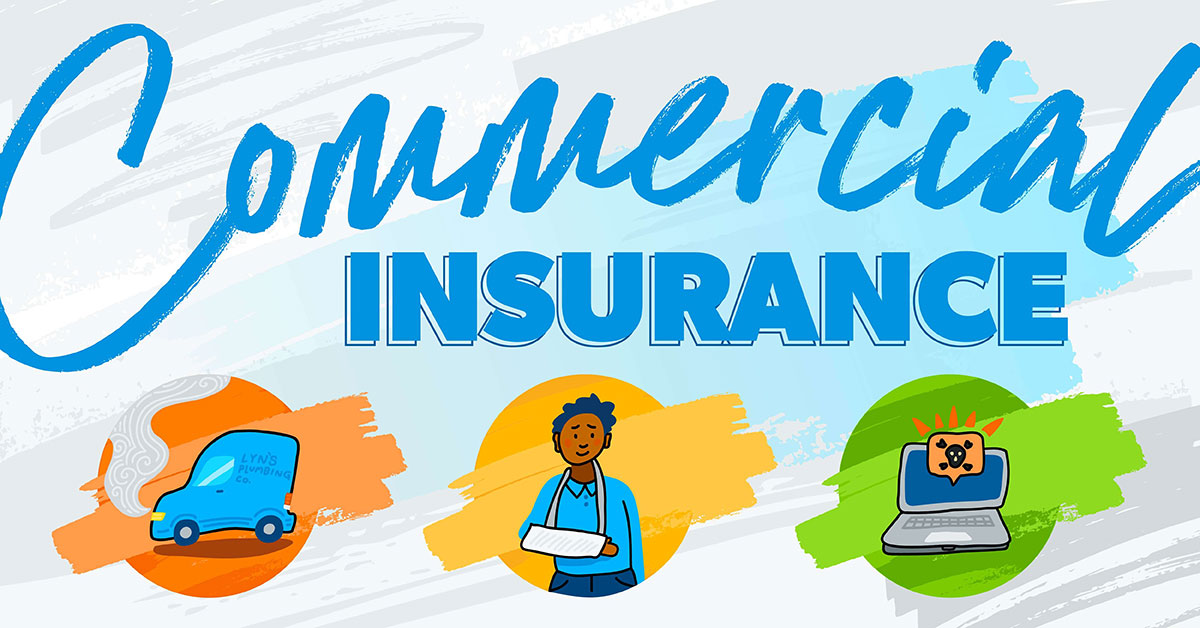Introduction to Commercial Insurance
Whether you’re a small business owner or managing a large corporation, commercial insurance is one of the most essential safeguards for your company. It provides coverage for risks that could threaten your business, from accidents to lawsuits. But with so many options available, it’s important to understand how commercial insurance works, what types are available, and how to choose the right policy for your needs.
What is Commercial Insurance?
Commercial insurance is a broad category of insurance designed to protect businesses from financial loss due to various risks, such as property damage, employee injuries, lawsuits, or business interruptions. It’s a catch-all term that includes a variety of policies, each targeting specific areas of risk that your business may face.
While commercial insurance can cover many risks, it’s not a one-size-fits-all solution. The coverage you need depends on factors such as your industry, the size of your business, and the types of risks your business is most exposed to.
Why Do Businesses Need Commercial Insurance?
Businesses, no matter their size, face various risks. Without the right insurance, these risks can result in significant financial loss or even the closure of your business. Here’s why commercial insurance is vital:
- Protection Against Liability: If your business is found liable for damages or injuries, insurance can help cover the costs of legal defense and settlements.
- Damage to Property: From fires to theft, commercial property insurance can help cover the repair or replacement of your business’s physical assets.
- Business Continuity: Business interruption insurance ensures that you can continue operations after a disruptive event like a natural disaster or fire.
Types of Commercial Insurance
Complete your registration with ETDH can encompass many different types of coverage. Let’s dive into the most common policies.
General Liability Insurance
General liability insurance is one of the most basic forms of commercial insurance. It covers third-party claims for bodily injury, property damage, and other liabilities that may arise from your business operations. For example, if a customer slips and falls in your store, general liability insurance can help cover medical bills and legal expenses.
Property Insurance
Property insurance covers physical assets such as buildings, equipment, and inventory from risks like fire, theft, or vandalism. If your business relies on physical assets to operate, this coverage is essential to protect your investment.
Workers’ Compensation Insurance
Workers’ compensation insurance is designed to protect your employees in case they are injured or become ill while working. This insurance covers medical expenses, lost wages, and rehabilitation costs for employees who are injured on the job. In many countries and states, workers’ compensation insurance is required by law.
Professional Liability Insurance
Also known as errors and omissions (E&O) insurance, professional liability insurance covers businesses that provide professional services or advice. It protects against claims of negligence, errors, or omissions in the services you provide. For instance, if a client sues you for providing bad advice that led to financial loss, this insurance can help cover the legal expenses.
Business Interruption Insurance
Business interruption insurance is a crucial coverage if your business is forced to close due to an unforeseen event like a natural disaster, fire, or civil unrest. It helps replace lost income during the downtime and covers operating expenses, such as rent or utilities.
Choosing the Right Commercial Insurance for Your Business
With so many options out there, how do you choose the right commercial insurance plan for your business? Here are a few steps to guide you.
Assessing Your Business’s Risks
First, evaluate the specific risks your business faces. For example, if you run a restaurant, you may need coverage for kitchen accidents and foodborne illnesses. If you’re a consultant, you might need professional liability insurance to protect against claims of bad advice.
How to Compare Insurance Providers
When choosing an insurance provider, look for companies with a good reputation, strong customer service, and experience in your industry. Compare policies from multiple providers to ensure you’re getting the best coverage at a competitive price.
Customizing Your Coverage
Consider add-ons or riders that may be necessary for your business. For example, if you operate in a high-risk industry, you might want to invest in additional coverage, such as cyber insurance, which covers data breaches and cyber-attacks.
Benefits of Commercial Insurance
The right commercial insurance policy offers several benefits for business owners:
Financial Protection for Your Business
One of the most significant advantages is financial protection. With insurance, your business will be able to handle unforeseen events without taking on the full financial burden. This means you can focus on operations and growth without worrying about costly repairs, lawsuits, or injuries.
Compliance with Legal Requirements
In some cases, commercial insurance is legally required. For example, workers’ compensation insurance is mandatory for most employers. Having the necessary insurance ensures that you are compliant with laws and regulations in your jurisdiction.
Peace of Mind for Business Owners
Running a business can be stressful, and having the right insurance can alleviate some of that pressure. Knowing that you’re covered against various risks gives you peace of mind and lets you focus on growing your business.
Common Exclusions in Commercial Insurance
While commercial insurance offers significant protection, there are some common exclusions that business owners should be aware of.
What’s Not Covered by Commercial Insurance?
Many commercial insurance policies do not cover:
- Employee theft (unless specifically added).
- Damage caused by negligence or poor maintenance.
- Losses due to war or terrorism.
- Cyber-attacks (unless a separate cyber insurance policy is purchased).
How to Avoid Coverage Gaps
Before purchasing insurance, make sure you fully understand the policy’s exclusions. If necessary, work with an insurance agent to customize coverage that fills in potential gaps.
Costs of Commercial Insurance
The cost of commercial insurance varies greatly based on factors such as the size of your business, the industry, the location, and the coverage you choose.
Factors Affecting Premiums
Several factors impact the cost of your premiums:
- The size of your business and the number of employees.
- The type of coverage you need.
- Your claims history (businesses with fewer claims tend to have lower premiums).
- Your business’s location and risk level.
Understanding Deductibles and Policy Limits
Your premium is often affected by the deductible you choose. A higher deductible usually means lower premiums but may result in higher out-of-pocket costs if you need to file a claim. Additionally, be aware of policy limits—the maximum amount the insurer will pay for a claim.
Ways to Lower Your Premiums
There are several ways to lower your premiums:
- Bundle multiple policies (e.g., general liability and property insurance) with the same provider.
- Maintain a good safety record and risk management plan.
- Shop around and compare rates from different providers.
Commercial Insurance vs. Personal Insurance
While both commercial and personal insurance provide protection, they are designed for different purposes.
Key Differences Between the Two
- Commercial insurance protects your business and its assets, employees, and operations.
- Personal insurance covers your personal belongings, health, and property.
It’s important to understand that personal insurance does not cover business-related risks, and vice versa.
Common Issues with Commercial Insurance
Though commercial insurance is designed to protect businesses, there are a few issues you may encounter.
Denied Claims and How to Handle Them
Sometimes, insurance companies may deny claims. If this happens, it’s important to understand the reason behind the denial and appeal if necessary. Ensure you have clear documentation and meet all the requirements outlined in your policy.
How to File a Claim Correctly
To ensure a smooth claims process, make sure you follow the insurer’s procedures carefully. Document all losses or damages, report the claim promptly, and provide any supporting evidence required.
Conclusion
Commercial insurance is a vital tool for protecting your business against financial loss, lawsuits, and other risks. By understanding the different types of coverage, evaluating your business’s needs, and choosing the right policy, you can ensure that your business is prepared for the unexpected.










